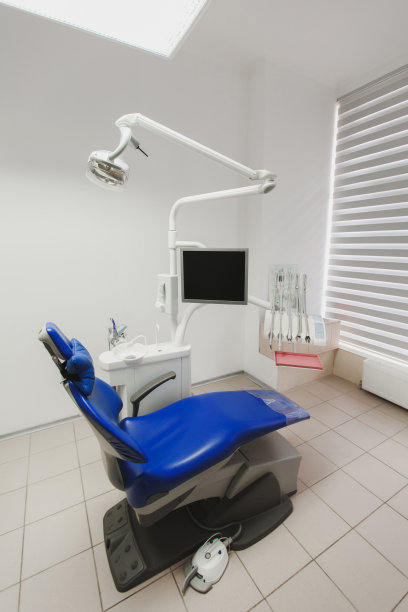Summary: Undergoing root canal treatment can be a daunting experience for many patients, yet proper preparation and precautions can significantly enhance the outcome. This article discusses essential steps that individuals should take before the procedure, focusing on understanding the treatment, evaluating oral health, managing anxiety and discomfort, and post-treatment care. Each aspect is crucial in ensuring that the root canal is executed successfully and leads to optimal results. Proper planning can alleviate fears and promote a faster recovery while ensuring that the procedure proceeds smoothly. Keeping these considerations in mind will empower patients to participate actively in their dental health journey.
1. Understand the Root Canal Procedure Thoroughly

Understanding what a root canal entails is fundamental to preparing mentally and physically for the treatment. A root canal involves removing the infected pulp from within the tooth, cleaning the area, and then sealing it to prevent further infection. This process can alleviate pain and preserve the natural tooth, which is preferable to extraction. Knowing the steps involved can help demystify the procedure and reduce anxiety.
Patients should consult their dentist about the specifics of the procedure, including its duration and what to expect during and after the treatment. A well-informed patient is likely to be more relaxed and cooperative during the procedure. Consider asking your dentist about the tools and techniques they will use, as technological advancements can make the treatment more comfortable and efficient.
Moreover, researching credible sources or watching educational videos can help familiarize you with the process and quell fears. Many dental offices provide informational brochures or videos that can be beneficial. The more you know about the procedure, the more confident you’ll feel going into it.
2. Evaluate Your Current Oral Health
Assessing your overall oral health is another vital step before undergoing a root canal. Conditions such as gum disease or active dental caries may affect the success of the treatment. Schedule an appointment with your dentist for a thorough examination, where they can provide insights and advice on any required pre-treatment care.
Consider mentioning any existing dental issues, such as sensitivity or pain associated with the affected tooth. Addressing these concerns prior to the root canal can greatly improve the outcome. Additionally, ensure that you maintain good oral hygiene practices leading up to the treatment to minimize any risks. This includes brushing, flossing, and possibly using an antibacterial mouthwash to maintain oral health.
Finally, its essential to discuss any medications or supplements you are taking with your dentist. Some medications may affect healing or interact with anesthesia. Being open about your health status can help your dental team tailor the treatment specifically to your needs.
3. Manage Anxiety and Discomfort Effectively
Anxiety surrounding dental procedures is common, but it can be managed through various strategies. Booking your appointment at a calm time of day, when you are less likely to feel rushed or stressed, can set a positive tone for the visit. Furthermore, consider bringing along a friend or family member for support, as their presence can help alleviate nervousness.
Deep breathing exercises or mindfulness techniques can also be beneficial. Practicing these methods before your appointment can help you feel more centered and calm. Some dentists offer sedation options, such as nitrous oxide or oral sedatives, which can make the experience more bearable. Dont hesitate to inquire about these options if you feel particularly anxious.
Additionally, communicating openly with your dentist about your fears can help them take extra measures to ensure your comfort. Feeling a sense of control through understanding and communication can significantly reduce anxiety levels, allowing for a smoother procedure.
4. Focus on Post-Treatment Care for Healing
Post-treatment care is crucial after a root canal to ensure optimal healing and avoid complications. Follow your dentists specific aftercare instructions carefully. This may include taking prescribed medications or using over-the-counter pain relievers to manage discomfort post-procedure.
Eating soft foods for the first few days is advisable, as your tooth may be sensitive after treatment. Gradually reintroducing regular foods while monitoring for any pain can help you gauge your recovery. Maintaining proper oral hygiene post-treatment is also essential; however, be gentle around the treated area to avoid irritation.
Finally, follow up with your dentist for any recommended check-ups. Adjustments may be necessary to ensure the long-term success of the root canal. Monitoring the treated area will help identify any issues early on and provide peace of mind as you heal.
Summary:
In conclusion, being well-prepared for a root canal can greatly influence the treatments effectiveness and your overall experience. Understanding the procedure, assessing your oral health, managing anxiety, and prioritizing post-treatment care are essential steps for success. By following these precautions, patients can take charge of their dental health and ensure a smoother journey through their root canal experience.
This article is compiled by Vickong Dental and the content is for reference only.
Vickong Dental
Vickong Dental is a large medical group established in Hong Kong in 2008 by professors from well-known medical universities in Guangdong and Hong Kong, as well as medical doctors from key national '985' universities (including Master's supervisors and senior professors). The chain of branches brings together expert dentists with PhDs and Master's degrees from Hong Kong and Mainland China, committed to providing high-quality dental treatment.
"Vickong Dental Practices the University Motto of 'Healing and Serving Society,' with a Stable Operation for Sixteen Years. It Has Been honored with Hong Kong Enterprise Leaders's Choice,' and is a Global Trusted Implant Center for the Nobel Implant System. Recommended by Hong Kong Metro Broadcast and Guangdong Television, it Serves Customers from Over Thirty Countries and Regions, Gaining the Trust and Favor of Citizens from the Guangdong-Hong Kong-Macau Greater Bay Area and Surrounding Cities.

Thousands of customers' unanimous praise
The most recognized and highly recommended dental service by customers in the Guangdong-Hong Kong-Macau Greater Bay Area
We Ensure You Receive Detailed Care and Attention Here
Hong Kong standards, Shenzhen prices, Your Trusted English-speaking dentists

Vickong Dental Medical-Grade Instrument Disinfection Process
Vickong Dental Medical-Grade Instrument Disinfection Process

Vickong Dental Chain: A Warm and Comfortable Environment for Treatment






Appointment Hours

Q&A
Why choose Vickong Dental?
Vickong Dental practices the university motto 「Medicine to Benefit Society」, with each branch bringing together highly qualified dentists with doctoral and master’s degrees from Hong Kong and the Mainland, and has maintained seventeen years of steady operation。Recipient of 「2024 Hong Kong Enterprise Leaders Brand」, 「2025 Hong Kong Enterprise Leaders Brand」, a Nobel Biocare Global Trusted Implant Center, and a brand recommended by Metro Radio Hong Kong and Guangdong TV。
To date, we have served customers from more than thirty countries and regions,earning exceptionally high word-of-mouth recognition and trusted recommendations from residents across the Guangdong-Hong Kong-Macao Greater Bay Area and surrounding cities
We have eight major branches in Zhuhai、Shenzhen,and a consultation and service assurance center in Hong Kong,so you can book a free consultation at any time for any questions,which is very reassuring.
If I do not accept the quotation after the CT scan, will I be charged??
No! As long as the actual treatment has not started, you will not be charged any fees.
Will there be any additional charges during the treatment process?
No, there won’t be any additional charges. Before treatment begins, we will clearly explain the treatment plan and its corresponding fees. Only after the patient agrees and signs the consent form will we proceed with the dental service.
Can I pay in Hong Kong dollars?
Yes. Vickong Dental accepts payment in Hong Kong dollars. The amount will be converted based on the exchange rate of the day, and the applicable rate will be clearly communicated to you in advance.
Can I reschedule my appointment at any time?
Yes. Please contact us via **WeChat** or **WhatsApp** as early as possible, providing your original appointment time and details, along with your preferred new date and time slot for rescheduling.













